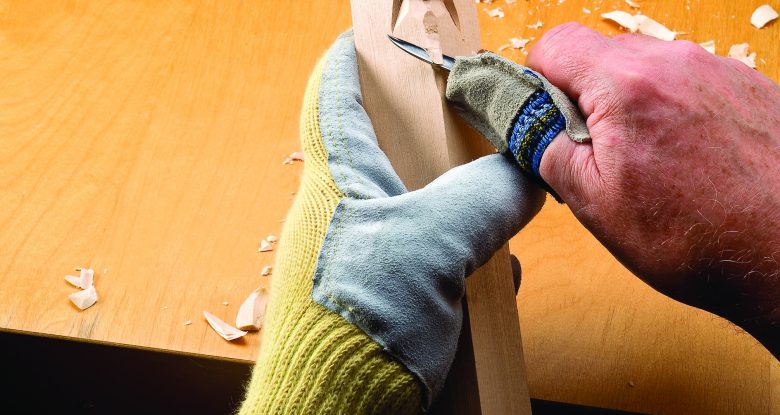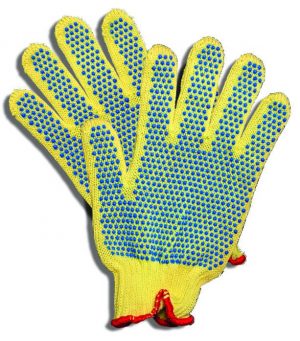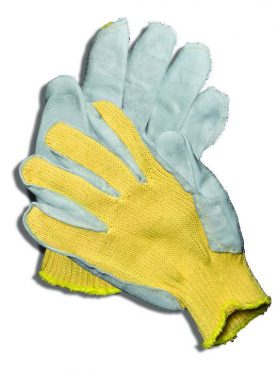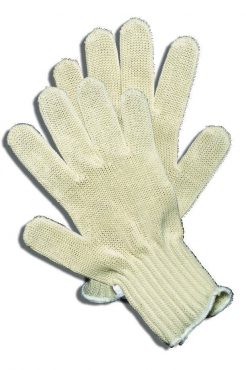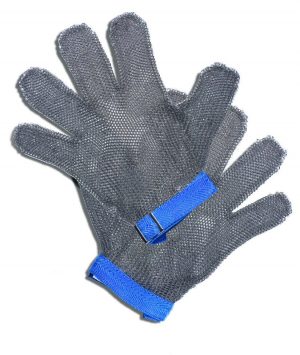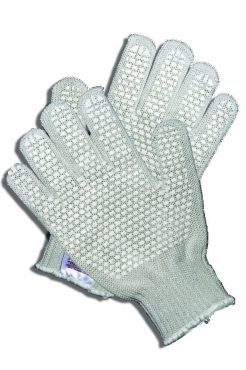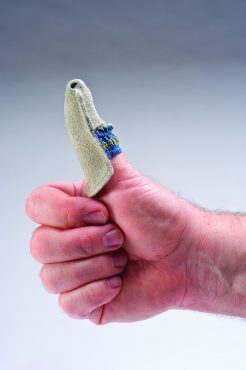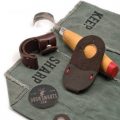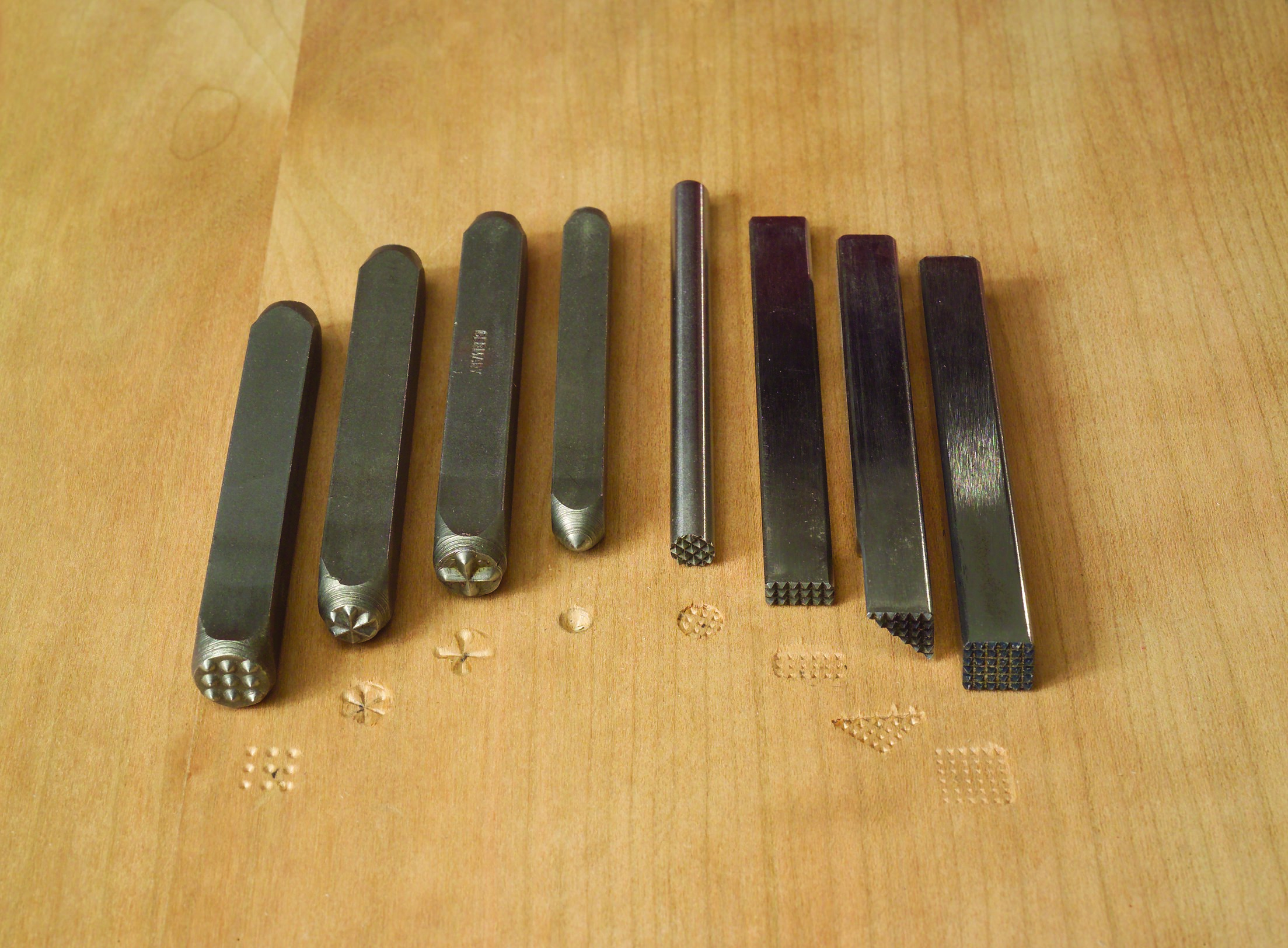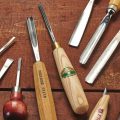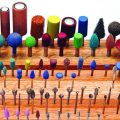An overview of commonly available protective gloves
by Bob Duncan
The safest way to carve is to use a holding device and keep both hands on the tool. However, many carvers hold their work in their hands. Proper hand positioning keeps the holding hand safely out of the tool’s path, even if the tool should slip. Another good safety precaution is to guard the holding hand with a protective carving glove.
Some carvers feel gloves lull you into a false sense of security, especially because no glove will stop every tool. Some carvers feel the gloves are awkward and can contribute to more cuts, because carvers get careless with the position of the holding hand relative to a possible tool slip. Many carvers swear by gloves; the carving glove goes on before the start of a carving session and comes off after all of the tools have been put away.
There are several types of protective carving gloves available. It is important to understand that gloves can stop a slicing cut, but no glove will prevent all injuries, especially punctures. Many carvers try a few different gloves before settling on one that works well for them. Here, a few woodcarvers share their carving glove preferences.
Skylar Johnson: Kevlar glove with rubber gripping dots
The Kevlar glove with rubber gripping dots is a great compromise between safety and comfort. The Kevlar fibers are as soft as cotton, but much more slash resistant. This softness allows for good freedom of movement, which may not be found in stiffer gloves. This glove also has rubber gripping dots, which help me hold my project securely.
|
The Kevlar glove with rubber gripping dots comes in five sizes: XS, S, M, L, and XL. Available for approximately $10 from many woodcarving supply stores. Visit your local store! |
Floyd Rhadigan: Kevlar glove with leather palm
I like a Kevlar glove with leather covering the palm, fingers, and thumb because the leather prevents the wood from slipping in the glove. The glove allows me to get a much better hold on the piece I am carving.
|
The Kevlar glove with leather palm comes in six sizes: XS, S, M, L, XL, and XXL. Available for $19 from The Carving Glove Guy, www.thecarvinggloveguy.com. |
Mitch Cartledge: Kevlar glove reinforced with steel threads
The Kevlar glove reinforced with steel threads is more comfortable than an all-metal glove and does a better job than a Kevlar knit glove. I have cut myself while wearing a Kevlar knit glove, but not with the Kevlar glove reinforced with steel threads.
|
The Kevlar glove reinforced with steel threads comes in five sizes: XS, S, M, L, and XL. Available for approximately $20 from many woodcarving supply stores. Visit your local store! |
Edmund Livingston, Jr.: Stainless steel filet or chainmail glove
I use a stainless steel filet glove because it stops a slash by most knives. Unfortunately, it won’t do much to stop a puncture wound by a small gouge or V-tool because these tools slip through the weave of the material.
|
Both stainless steel filet and chainmail gloves usually come in five sizes: S, M, L, XL, and XXL. A dedicated chainmail carver’s glove is available for approximately $80 from Lee Valley, www.LeeValley.com. Filet gloves range in price from $6 to $20 and are available in the fishing section of sporting goods stores. |
Steel thread-reinforced Kevlar glove with rubber dots
Editor’s Note: The Woodcraft Shop and Chipping Away carry a steel thread-reinforced Kevlar glove that features rubber dots to help you grip the carving. Because it is relatively new, a personal recommendation is not available. The glove features the same cut resistance as other Kevlar gloves reinforced with steel threads, and because of the addition of the rubber gripping dots, it’s likely to be popular.
|
The steel thread-reinforced Kevlar glove with rubber dots comes in six sizes: XXS, XS, S, M, L, and XL. Available for approximately $22 from Chipping Away, www.chippingaway.com, and The Woodcraft Shop, www.thewoodcraftshop.com. |
Thumb protection
Carvers also need protective gear for the thumb of their knife-holding hand. Carvers often use a paring cut, which requires you to draw a knife through wood toward the thumb. The thumb guard protects your thumb as you make this cut. It also cushions your thumb as it is pushing on the back of the blade when you are cutting away from yourself.
Thumb guard
Many carvers use leather thumb guards to protect their thumbs. This is simply a leather pad attached to an elastic band. The leather on some guards extends over the tip of the thumb and the top is open on other guards; there really isn’t much difference in effectiveness between the two types.
Plasticized tape
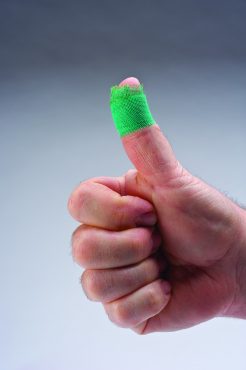 Some carvers wrap cut-resistant plasticized tape around their thumbs to make a custom guard. While the tape carvers use is similar to the self-adhesive tape used by veterinarians to hold bandages onto animals, vet wrap tape is not cut resistant and should not be used as a substitute. I’ve also heard of carvers fashioning their own thumb guards from duct tape, or using duct tape to reinforce leather or rubber thumb protectors.
Some carvers wrap cut-resistant plasticized tape around their thumbs to make a custom guard. While the tape carvers use is similar to the self-adhesive tape used by veterinarians to hold bandages onto animals, vet wrap tape is not cut resistant and should not be used as a substitute. I’ve also heard of carvers fashioning their own thumb guards from duct tape, or using duct tape to reinforce leather or rubber thumb protectors.
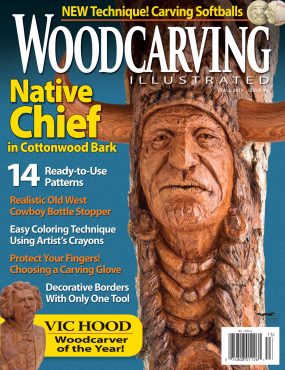 This article was first published in Woodcarving Illustrated Fall 2011 (Issue 56).
This article was first published in Woodcarving Illustrated Fall 2011 (Issue 56).
Discuss this material on the Woodcarving Illustrated forums.


